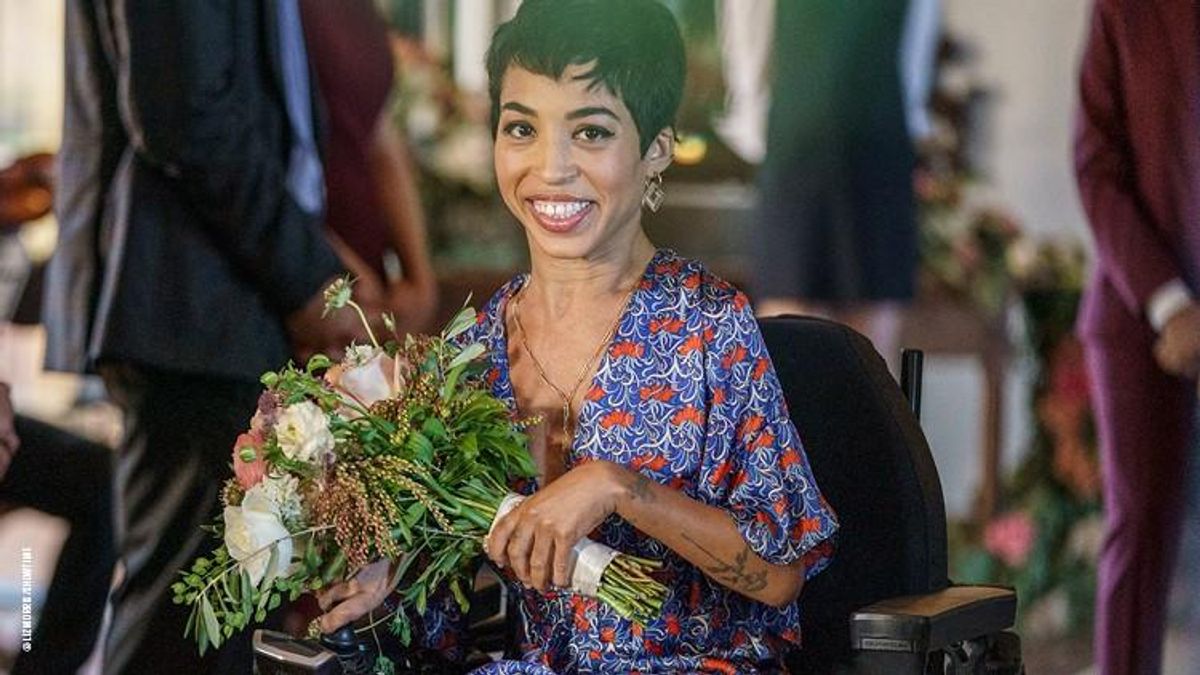Model, actress, and disability advocate Jillian Mercado first landed on the fashion world's radar in 2014 when she was featured in an ad campaign for denim brand Diesel, her first big gig. Soon after, she signed with IMG Models, and has since added campaigns for Nordstrom, Target, and Olay to her resume; been on the runways of New York Fashion Week; appeared on a billboard in Times Square and on the cover of Teen Vogue; and even worked with the Queen Bee herself (modeling merch for Beyonce's Formation world tour).
Still, there was something else in Mercado beyond her striking beauty and wicked-cool style that the producers of The L Word: Generation Q saw in her. Though she had no professional acting experience, she landed the role of Maribel on season 1 of the rebooted series. Now with a second season under her belt, Mercado reflects on her journey from young musician to fashion icon to Hollywood ingenue.
"I was such an imaginary kid," recalls Mercado, who was diagnosed with muscular dystrophy in her teens. "I went from wanting to be a ballerina to wanting to be an astronaut," but eventually settled on becoming a professional violinist.
"I was so into classical music and used to go to the philharmonic on their free days, and just sit during rehearsal. I was like, Oh, my God, I want to be here one day."
Fate had something else in mind. Her mother's work as a seamstress slowly began to birth her love for fashion at an early age. Mercado studied at the Fashion Institute of Technology in New York City but says that a career in modeling or acting still seemed out of reach simply because she never saw anyone like herself (disabled, queer, and of color) in those realms.
"Once I kind of faced the reality of the lack of representation and inclusion there was of the disability community...that really kind of turned my whole world upside down," she says. "Because it wasn't about me chasing my dreams anymore and being in the fashion industry or entertainment industry. It was like my existence is a political statement.... I have such an opportunity right now to really make real change within the industry."
This story is part of The Advocate's 2021 Film and TV issue, which is out on newsstands October 5, 2021. To get your own copy directly, support queer media and subscribe -- or download yours for Amazon, Kindle, Nook, or Apple News.


















































































